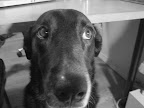I've been lucky to connect with new strangers almost every day I've been in China. Today on the train five army men mistook me for a sixteen year-old boy (so they later told me, when I confessed ovaries) and made me drink beer and eat sunflower seeds and talk politics and society for four hours. Yesterday on the train a man saw me reading an English book in the dining car and we talked politics and society for two hours. Day before that etc. etc.
People here talk to me like I'm one of them. By people here I mean Han Chinese people, the majority, the ethnicity one thinks about when one thinks "Chinese." And it's not a social position I've felt before. The majority. I'm not sure I like how it feels. Because I've been talking to Han Chinese people, who have been so generous and open-hearted and curious and warm to me - offers of food, assistance, companionship, advice; friendliness, helpfulness; questions and attentive listening; responses to all of my questions about Chinese politics and society etc. etc. -
But then in hour two of the conversations I start asking about Xinjiang. And Uighurs, the Muslim ethnic minority concentrated in Xinjiang. The full name of which is the Xinjiang Uighur Autonomous Region. And the anti-Han riots, the suicide bombings, the beheadings, the push for a Uighur state. Or, on the other side, the discrimination, the assimilation, the military presence, the de facto perhaps also de jure segregation.
Both the army man and the dining car man, when I asked, dropped their voices to whispers and looked around them. We were traveling by train through Xinjiang, and many passengers were Uighur. Then the dining car man said, "They're a little stupid." The army man said, "They're undeveloped, incompetent people." A woman earlier in the week had said, "They'll never be like us. They don't eat pork. They don't speak the language. They have to leave work to pray five times a day. How can we be expected to hire somebody like that?"
I don't want to make the people I spoke to seem like villains, because the picture is much more complicated than that. How fearful or hateful would you be if people of your demographic were being killed in your city for being people of your demographic? The Western press doesn't know which is the worse boogeyman, the Islamic terrorist or the Chinese government, so reporting about Uighur separatism doesn't have quite the same sanctimoniousness that reporting about Tibet has. And the dining car man saw multiculturalism as the driver of development. He pointed out that Shanghai you can see American, European, African, Middle Eastern, Russian faces everywhere, and that China needed more of the same. He quoted Confucius: "三人行必有我师." In literal translation, "If three of us are walking together, at least one among you can be my teacher." Meaning be humble, and accept that other people have things to teach you. But this is the man who also proposed that the only solutions to the Uighur problem are (1) let the Uighurs secede, which China will never do because of the natural resources in Xinjiang, or (2) assimilate the Uighurs completely so their culture disappears?
What I want to note is my discomfort with the us in the sentence "They'll never be like us." I'm rediscovering on this trip what I love about China and Chinese culture - including the traditional, education-hungering, hierarchy-respecting aspects and the reduced expectation of privacy, which make possible the familiarity strangers assume when probing me - but paradoxically I do not like that it is so clearly defined. Three thousand years of tradition can sure ossify a society's understanding of how a member should look, behave and believe. And I don't want to be part of a majority culture that demands a minority assimilate or go away, and until they do feels entitled to treat them as second class. The in-group, conspiratorial tone feels too much like the conversations I imagine white people have in bars and living rooms in America when there are no people of color around: "If they're going to come here, why can't they learn our language [and stop eating chicken feet] . . ."
I recognize the historical inaccuracies interlarding my thoughts here. Is it fair to say Chinese culture is a monolith? My surname more or less means "barbarians at the gate," because once it swept in from the northwest, pillaging on horseback, but now it is China's president and it shakes hands with Barack Obama. I don't understand historical patterns of migration and cultural diversity in China well enough to say the first part of that last paragraph. The second part stands, though. I'm just not interested in being us to anybody's them.
Saturday, October 15, 2011
Subscribe to:
Post Comments (Atom)

No comments:
Post a Comment